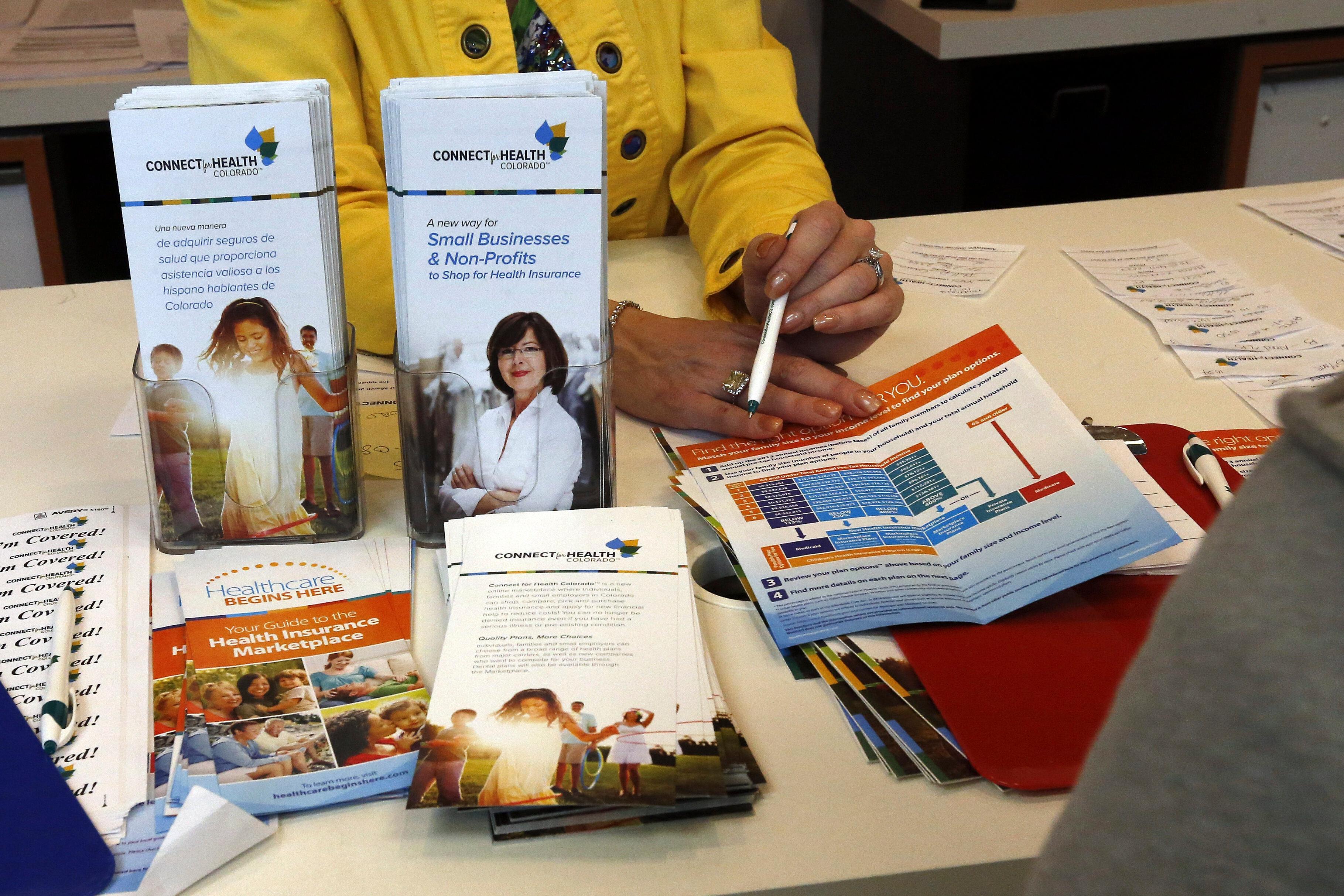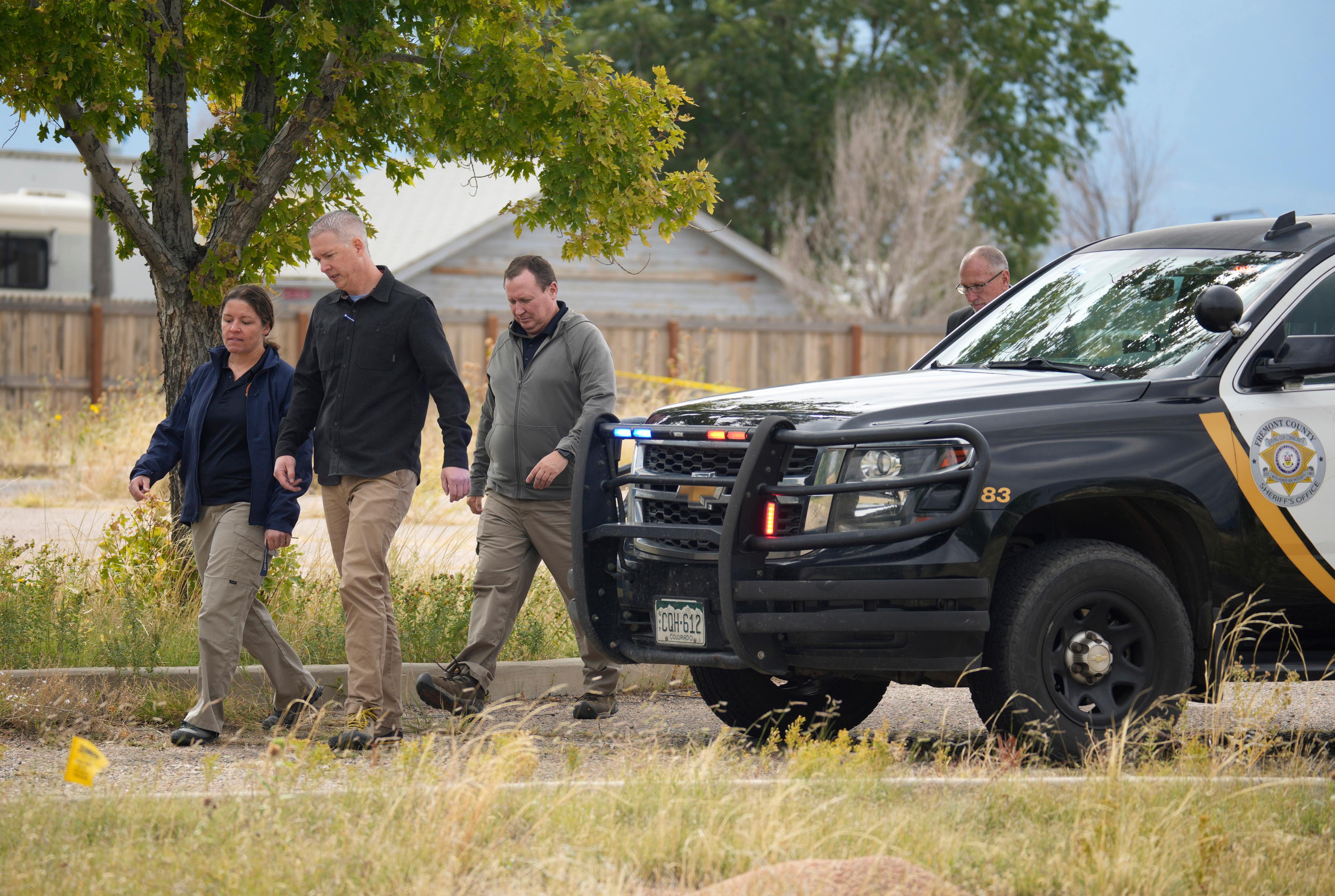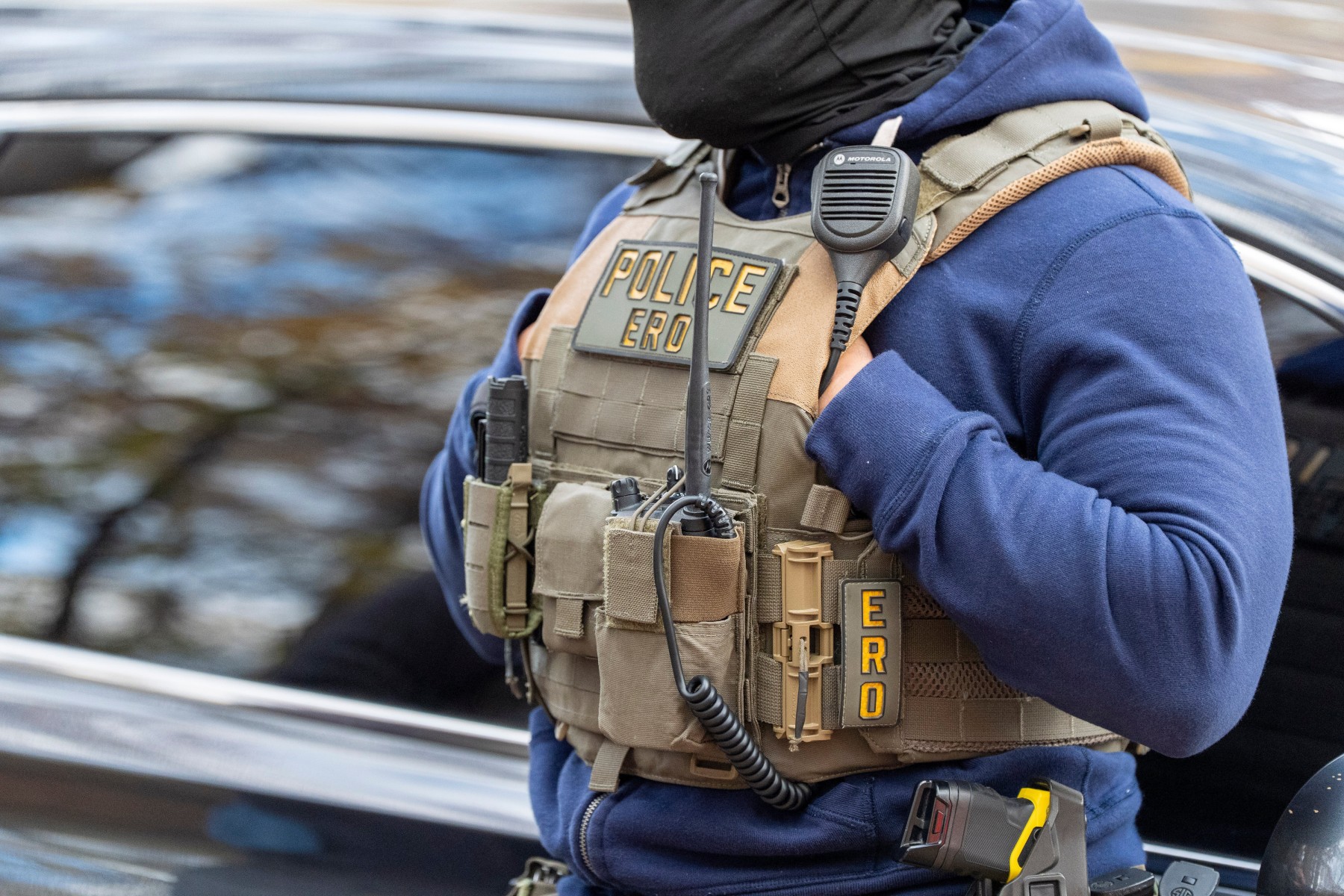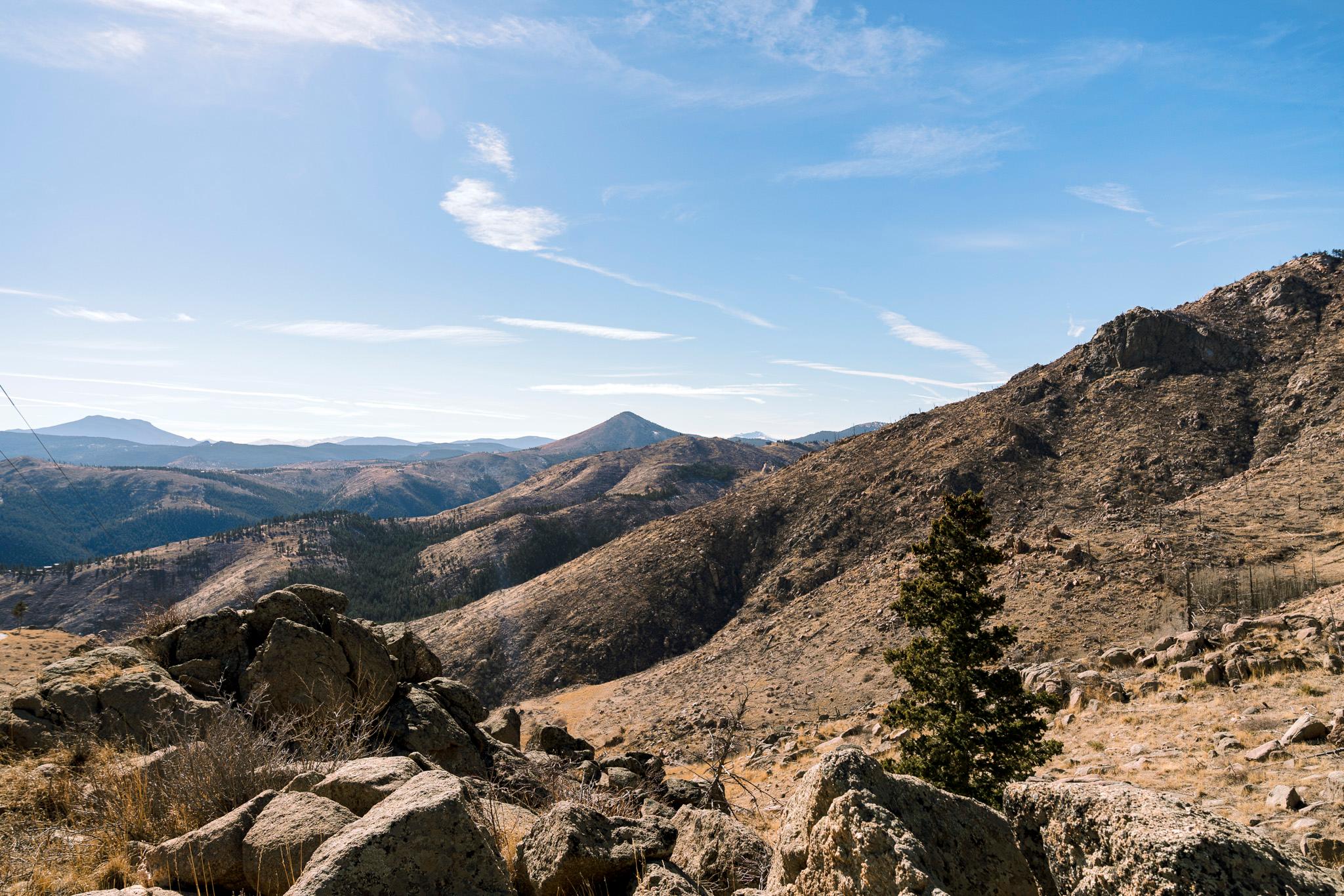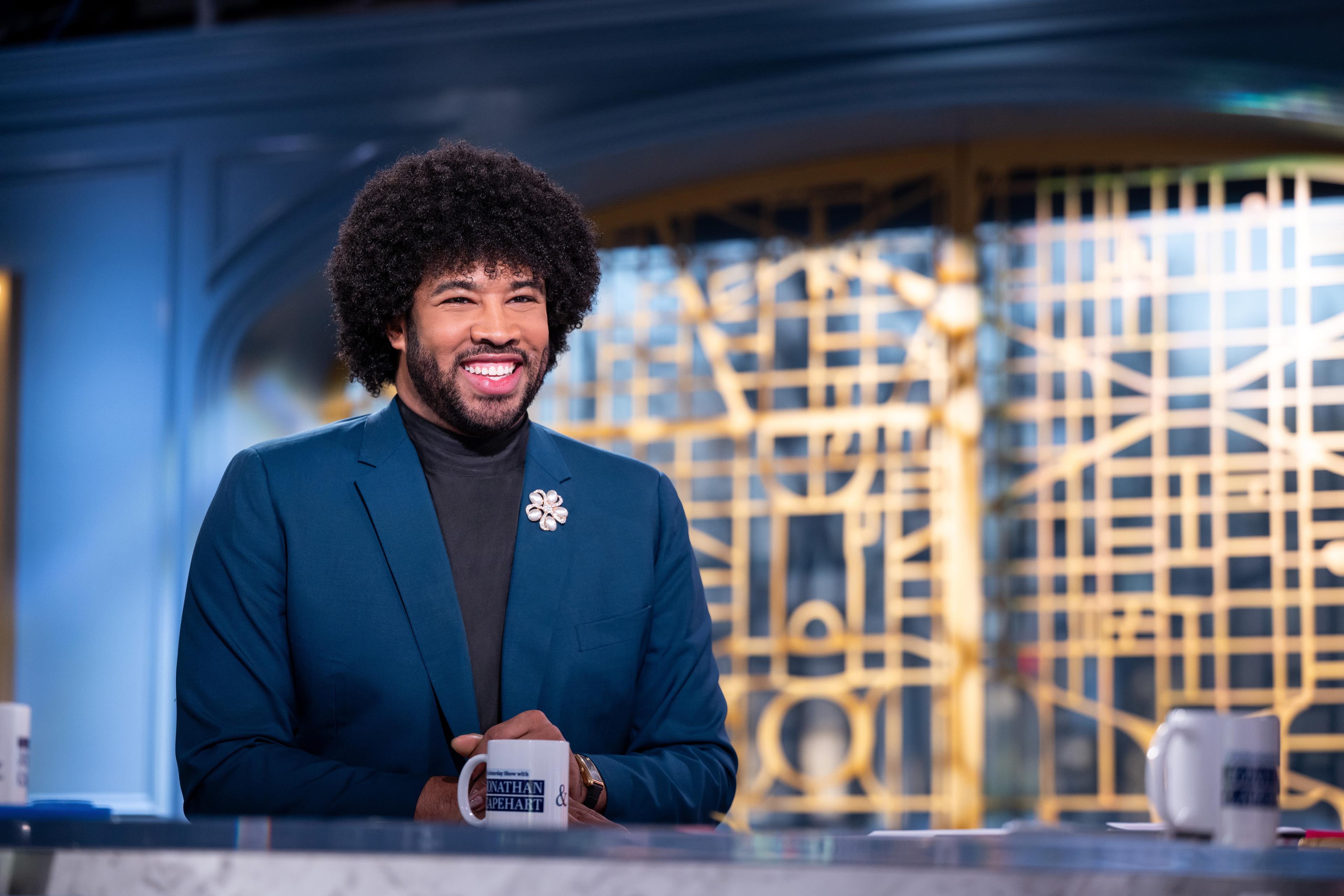
“Life is what happens to you while you're busy making other plans,” John Lennon sang in the 1980 track “Beautiful Boy (Darling Boy).”
The sentiment could not be truer of Eugene Daniels’ time at Colorado State University. His vision was to play football, study political science, then law, and eventually become U.S. president. An injury derailed his athletic trajectory and a distaste for the life of a politician steered him, instead, toward journalism.
Today, Daniels covers Washington, DC for MSNBC, where he co-hosts “The Weekend” on Saturday and Sunday mornings. While he has not become the American president, he is president of the White House Correspondents’ Association (WHCA).
The 2012 CSU graduate is this year’s commencement speaker – addressing seniors and families Friday in Fort Collins.
Daniels spoke with Colorado Matters about his message to graduates, the state of journalism, covering the Trump Administration, his upbringing, and the discrimination he has faced as a queer Black man.
This interview has been edited for length and clarity.
Ryan Warner: The graduates you'll address step into a world of both uncertainty and opportunity. What do you hope they'll take away from your remarks?
Eugene Daniels: That the work you choose to do matters, that choosing things to do in your life that move you and are in line with who you are, and what you want to bring to this world, is important. My mother told me as a kid, “You belong in every single room you find yourself in.” But when you're in that room, what you do matters, who you bring into that room matters, what you say in those rooms matters, and always remember what your goals are in life because these times are tough, and scary, and chaotic. And so, it's important for us to have centers we can go back to when we need to.
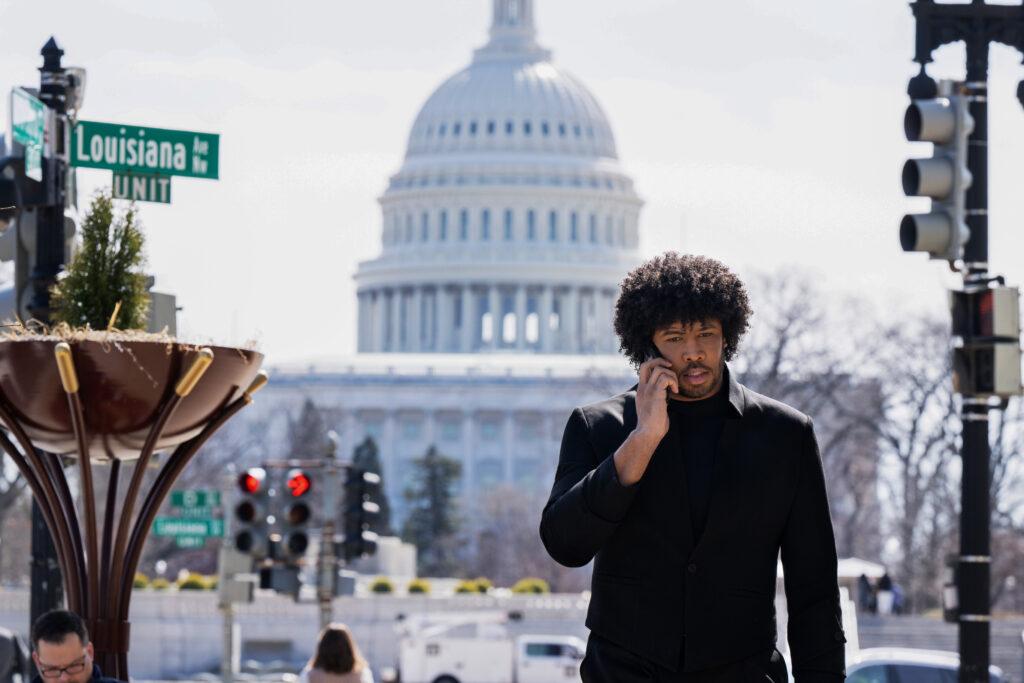
Warner: What about these times is scary to you?
Daniels: Uncertainty in the world. Both the closeness and vastness of the world. Every day there's something happening that feels, I think, a little chaotic for folks and, for someone like me who covers Washington DC and politics, and policy, and the people around it, trying to find time to take a deep breath and be a person is difficult. And, I think a lot of people are feeling that way.
Warner: This thing your mom told you, “You belong in every room you find yourself in.” What was her motivation for saying something like that to you, do you think?
Daniels: I think me and my siblings are really fortunate that our parents both instilled in us and taught us the history of this country, and the expectations, and the discrimination, and the kinds of things that we could go through as Black people in this country, while at the same time telling us that we brought something special to the world. And, I think that was what she was trying to get at. And when you're a kid, you have no idea what that means, right? It's like, "Here's our mom giving us this flowery speech." But when you become an adult and you start to get in some rooms that you never anticipated yourself getting in, then it starts to really make a lot of sense.
Warner: You came to CSU in part to play football, but a shoulder injury changed your trajectory. Take us into the time between that injury and catching the journalism bug, if I have my timeline right.
Daniels: The journalism bug I caught while I was on the football team, actually. I came to school to play football. And I came to study political science, and I wanted to be a lawyer, and then a politician, and then the first Black president. This was in 2007. As a kid, that was my goal. That's what I always told people when people were like, "Don't you want to be a football player in the NFL," or, "Don't you want to be a jet pilot, or in the Army like your dad?" I would always say, "I want to be a lawyer."
I think it was because I like to debate and do research, and I'm kind of a nerd. But, I was sitting in a class, it was called the Politics of Special Interest Groups, and I realized that there were certain things that politicians sometimes found themselves doing when it comes to lobbying and the pressures that I couldn't do.
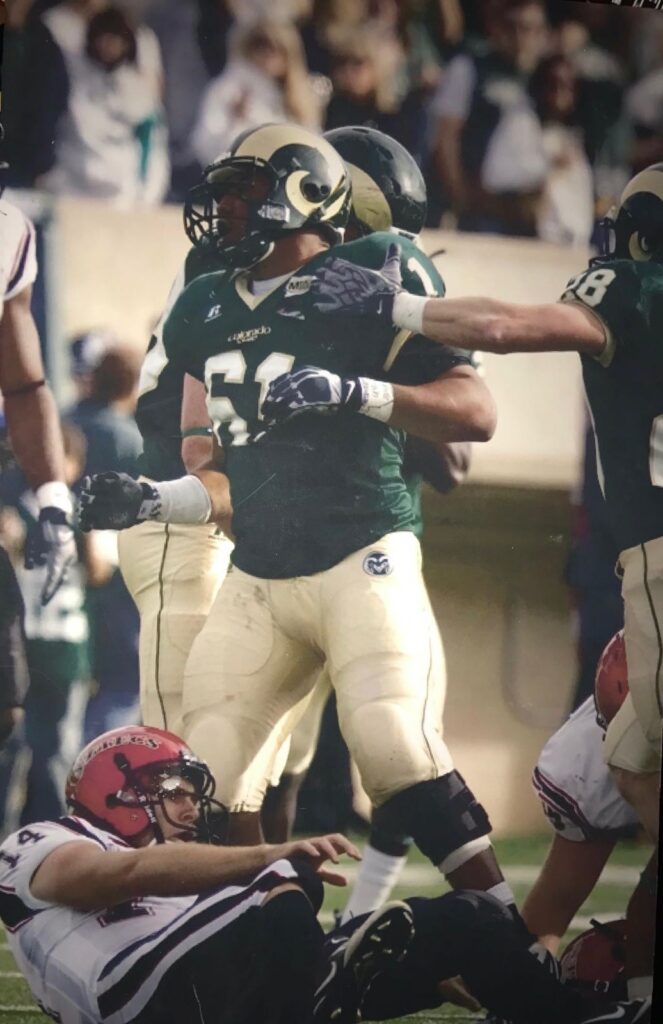
So, I went to Pam Jackson [now Associate Vice Provost for Communications]. I had taken a class of hers. It was literally Journalism 101. And I told her, "Oh, my God. I'm so scared. This is what I want to do my whole life. What am I going to do?" And she said to me, "Maybe you don't want to be a powerful person. Maybe you want to hold powerful people accountable." Pam came to the White House Correspondents' dinner this year with me, one because I love her so much, and as a reminder and example to everyone in those moments, give young people what they need.
And, that kind of changed everything for me. After she said that, I changed my major. I leaned so hard into student media. I wrote a column for The Collegian. I was a reporter for KCSU. I did CTV where I was an anchor reporter and producer, and then I had this late-night talk show called “Daniels After Dark.” It was essentially a mix of “Chelsea Lately,” with a little Jimmy Fallon and a little Oprah.
And after Pam said that, everything changed in my life and I became more obsessed with journalism, and holding powerful people accountable, and telling stories for folks who can't tell those stories for themselves. It became clear that was going to be the path that I took as an adult.
Warner: The current U.S. president isn't much of an institutionalist. The press, of course, is an institution– one protected by the First Amendment. How much of your job is journalism these days, Eugene, and how much is your job advocating for journalism and a free press?
Daniels: It's a mix. It depends on the day. It depends on the hour sometimes. And those two hats that I wear, the one for MSNBC as a host and correspondent, stay on one side of my brain, and the WHCA of it all stays on the other. I think it's what every WHCA president has done because we are all working journalists.
I do spend quite a bit of time talking to all types of people, whether in our membership or not, about the freedom of the press and more importantly, making clear that it's not about us. It's about the American people getting an unvarnished look into what the leadership they elected in this country are up to, and what they're doing on their dime and in their name.
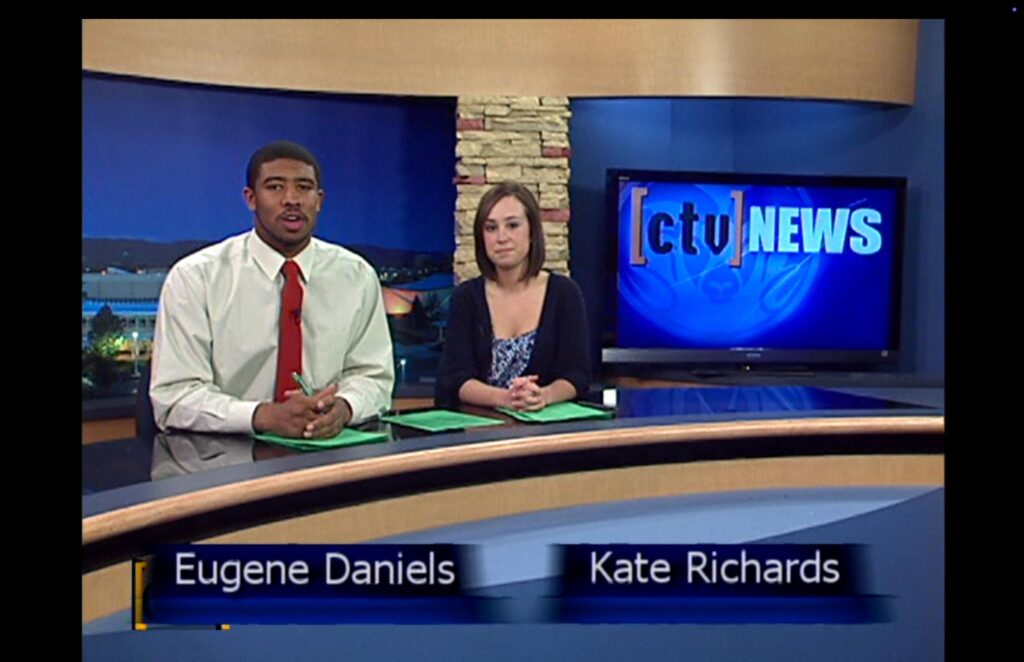
Warner: Traditionally, a comedian has performed at the WHCA’s annual dinner. This year that was supposed to be Amber Ruffin, but she was taken off the program after calling the Trump Administration on a podcast, "kind of a bunch of murderers." Was that change a slap on the hand to Amber Ruffin? Was it a capitulation to the White House?
Daniels: It was neither. We weren't slapping anyone's hands, and we don't capitulate as a board. If you knew me better, you know that I'm not much of a capitulator. We ended up with what our membership made very clear. The dinner they needed and wanted was one focused on the journalism, on the First Amendment– defending and supporting it, and on the students that get scholarships only because of our dinner. As for our award recipients, I was very happy – for the first time maybe in our history– to allow them to accept their awards themselves. Usually they come on stage, take a picture and walk off. But this year, they got to talk about their stories, what it took, and more importantly, what it meant to them. All of that was what folks needed. That was in the works well before anyone went on a podcast and said anything and well before the White House said anything about anything. Those things just aren't connected. The timing wasn’t great publicly, but at the end of the day, we are a membership organization. I did what was best for our members.
Warner: You've begun hosting “The Weekend” on MSNBC. Three hours is a lot of television, or six, if you're adding up Saturday and Sunday. What, to you, is the right balance between pure coverage and commentary? Because I think that line has been blurred on cable news.
Daniels: I don't think about it as commentary so much as analysis for what I do. Other people, I think, are commentators. That was never the title I had when I started my relationship with MSNBC in 2021. I was always an analyst, or something like that. And I think that's really important because, as people who are reporters, myself and Jackie Alemany, my co-host who are straight news reporters, Jonathan Capehart is an opinion host obviously, but the two of us and others on the network that focus on the news, we can also call balls and strikes. You get to analyzing the news and letting people know why it matters, adding context for them. That's really important, right? It is, especially with all of the news coming during the week.
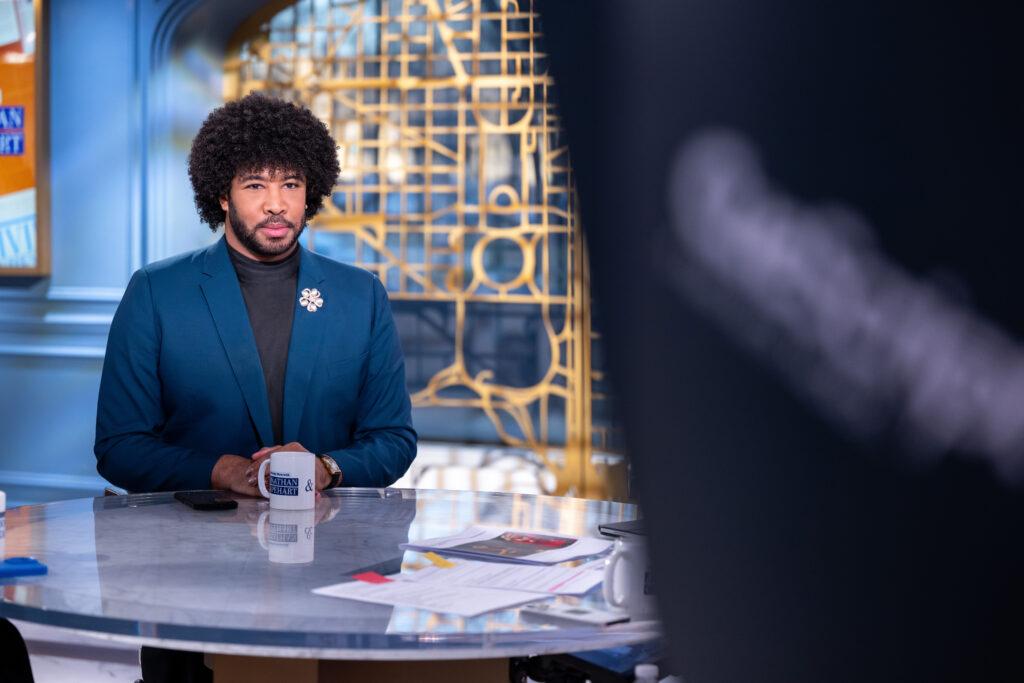
We get six hours of television every week on Saturday and Sunday, where we, one, tell folks what happened, work through that information with members of Congress, advocates, activists, journalists, and then tell them what's coming. You could only do that if you have six hours. So it actually goes by surprisingly fast, we realized, over the last couple of weeks as we started. And we're having actual fun talking about it – because we're all nerds who love politics and really care about this country and what happens to it. Also, there's lots of coffee. Lots of coffee, Ryan.
Warner: What is a storyline you're nerding out on right now?
Daniels: The impacts on regular people from DOGE (Department of Government Efficiency) cuts. I'm really interested in and excited about delving into what happens to people on the ground because of decisions made in Washington, DC. I'm really excited to work at a place where that is also the focus. We'll talk about the powerful people, and the people who want power, and all the people in DC, but at the end of the day, it is really important for journalists to have their eyes on the majority of the people in this country who don't have a lot of power, who don't have access to Washington, DC every single day. They are the beating heart of this country, and that's the storyline that I'm excited about and nerding out about right now.
Warner: The beltway is such a powerful force. How do you get outside of it so those voices are heard?
Daniels: Well, one, my family's from Bucksport, South Carolina. My husband's family is from Saint Onge, South Dakota. So, there's those touch points that make it quite easy to do so. But I approach journalism, and always have, by trying to talk to the actual people on the ground, whether that's during the campaigns for president, or for Congress where I'm not just talking to– and you can't just talk to the communications folks on the campaign, or you can't just talk to the policy person on the campaign.
It's “Who did they talk to and bring in the room when they were on the road and when they were thinking about this policy. Who was the target audience and did they actually get what that candidate, or that President, or that member of Congress, promised them?”” I don't find it that difficult. I don't love groupthink by nature. I always move away from that. Also, I think, by nature of who I am as a person and the communities that I come from, that it is actually really easy to focus not on just what's happening here in Washington DC, but always remembering that there are actual people these policies impact.
Warner: To that point, is this an administration in your mind that is fulfilling its promises to voters?
Daniels: Yes, it is. They are. This is a president who promised to use tariffs as a tool– whether that's in negotiations and getting people to the table or a punishment. This is a president who promised to deport undocumented immigrants in this country. They talked about mass deportation. This is a president and his team who talked about going after perceived political rivals or enemies, and they've done that.
It's also a president, and with a lot of folks around him, that believe in the Unitarian Executive Theory, which is basically that the executive has a lot more power than presidents in the past have wielded and used. So I think a lot of these things are happening exactly as they promised. I think the difference is there was also the promise of a real focus on fixing the economy very early on. I think that's why even his own voters, when we talk to them, are concerned about where the economy is, where it's going, how these tariffs are going to affect them, because the majority of the things that it feels like they're focused on in the administration are not these economic issues.
Warner: Early on, you produced content for a television station in Colorado Springs, and you tweeted about that in 2019. I just wanted to read some of that tweet. "I made $26,000 in my first and last local TV job. I often gave plasma to afford groceries and gas. The pay in local journalism is abysmal, and has been for years." Eugene, six years later, how does that social media post resonate with you?
Daniels: I don't even remember that tweet.
Warner: Do you remember selling plasma?
Daniels: I do. Oh yeah, baby. I remember selling plasma a lot. I still have it in my documents. Every time you move, I'm like most people, I don't always throw things away. So the things that you sign when you give plasma, I also did a lot of payday loans, which a lot of people do who are struggling and don't have a lot of money. I do know a lot of those people still work in local journalism.
It is terrible, the lack of resources that journalists in local communities receive, and it's only getting worse. The jobs are less. The money is, if you talk to folks, and I do, who are still working in local journalism because they care about their communities, they are still not getting what they need. And, the people that lose out are the people in the community. Think about all the corruption that is happening on the local, or regional, or state level that isn't being covered because of a lack of resources at newspapers and radio stations, at TV stations in these areas – because a lot of reporters are focused on that.
And people don't join journalism, not anyone that I know, because they think they're going to be rich, right? We were told when I was in journalism school at CSU, "You're not going to make a lot of money, but you are going to make a difference," and that is why people get in. And the fact that local journalists are still making what they're making– despite the impact they have on their communities– is disturbing– especially in a time where people still look to the local news for a lot of the information they get.
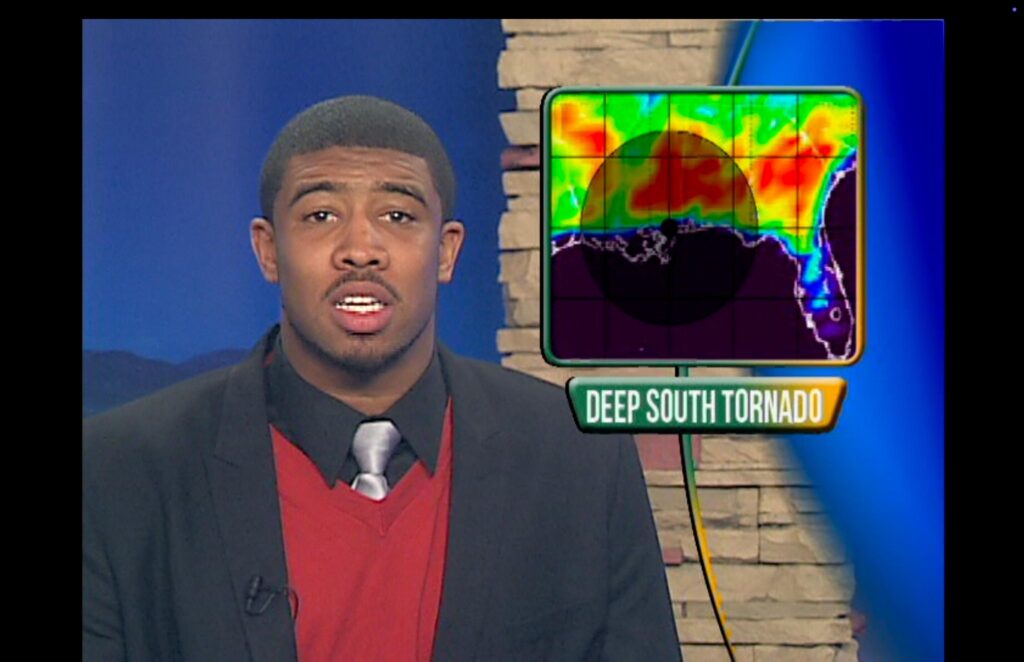
Warner: I'm desperate to know if you would recommend a journalism degree to someone today?
Daniels: Yes. I absolutely would. I still believe deeply in the reason that I got into journalism, and I believe deeply in the mission of journalism. I think that people deserve to know what's going on in their name and on their dime, and I believe that to my core. What I would tell anyone that wants to get a journalism degree: “This is hard, but it matters. This is difficult, but it's important. This is sometimes painful, and you might have to get plasma, and you might have all of those things.” Those things are bad, and we should do everything we can as a culture and as a country to change those things, but people deserve information. People deserve to hear from the folks that make the decisions, the people that they put in power, and they deserve to know more about the world. And, I think that is only good for all of us.
Warner: Let’s go further back, Eugene. You were in elementary school, and you also shared this on social media: Teachers told your mom how scared they were of you when you walked into class, and the thread continued. “Imagine being asked by law enforcement, ‘Is this car stolen,’ multiple times?” Also, this, "For 31 years, being a big Black man has put a target on me. I am college-educated, live in DC. I work at one of the biggest news organizations in the US, and I am still followed in stores." How do those words resonate with you now?
Daniels: The same. Those things still happen. I'm still at one of the biggest news organizations in the country, and will go into a store and will still be followed. I could be wearing a full suit with my cute work bag, and it does not matter. I think what I was saying in that tweet in 2020, and what I would still say to this day, is that there's no amount of money, or influence, or power, or experience you can get that blocks you from the types of discrimination that can still happen in this country, the types of treatment that Black people in this country, queer people in this country, other marginalized groups are subject to.
What I was trying to share with that tweet was, I had all these friends and colleagues who, during 2020, were saying like, "Oh my god, thank god that these kinds of things couldn't happen to you." And I'm like, "Oh, baby, they do. They actually do happen." I have been so lucky not to have been hit by the police, or anything, arrested or killed, but I have been in all types of situations with police officers – walking in my own neighborhood in Washington, DC – asking me what I'm doing there as I'm going home from the Metro. So, it was my attempt at adding a little bit of understanding to what was happening in 2020.
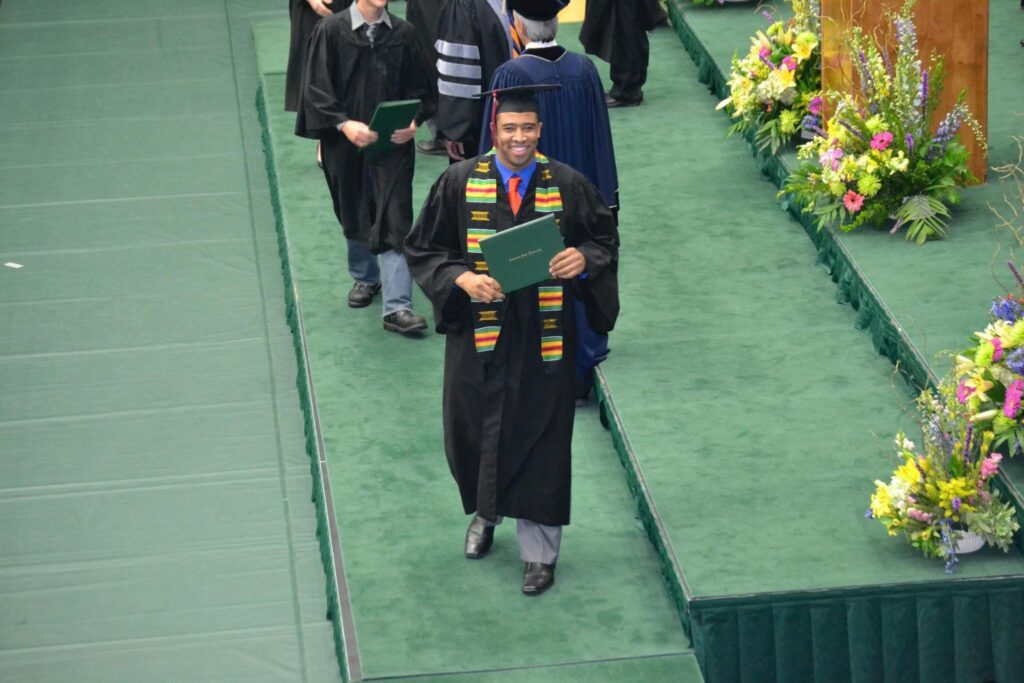
Warner: Do you think that's going to get worse?
Daniels: I don't want to predict. I think, at heart, I'm a hopeful person, so I hope not. But I think we're seeing that compassion and empathy are less a part of our culture, and that leads one to believe that it may not get better, that it may get worse. But, I'm always heartened by younger generations that I talk to, who seem to think a little bit differently about some of these things, and I think that kind of heartens me in a way.
Warner: Before we go, I want to read the opening line from an April article in the trade publication TV Insider. "President Trump's controversial tariffs have positively affected cable news, with MSNBC, in particular, seeing a significant ratings boost." Eugene Daniels, is President Trump good for your network?
Daniels: I don't think about it like that, and I don't think anyone at the network thinks about it in that way. No one's ever shared that with me. I think people are trying to understand what's happening in their country, that people are looking for context and clarity in a world that lacks both of those things. I think there's so much news coming out of the White House. There's so much news, and the one hour that the president may speak almost every single day, that people need good journalists to sift through that.
They need people like my fabulous colleagues at MSNBC as we're building this great news-gathering operation under Rebecca Kutler and Scott Matthews. They need them, and us, to decipher these things for them, explain these things to them, pick the mirror up and show the country what it is, and what's happening. So I don't think about whether or not any president is good or bad for television. I think what's good for television is good journalists doing really hard work and focusing on the reason we got into this, which is to let people know what's happening in their name.
Funding for public media is at stake. Stand up and support what you value today.

